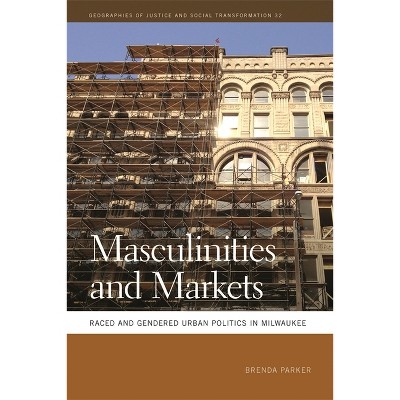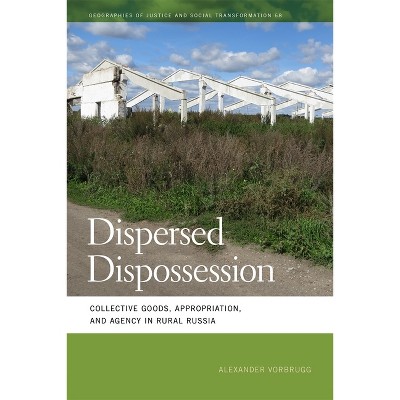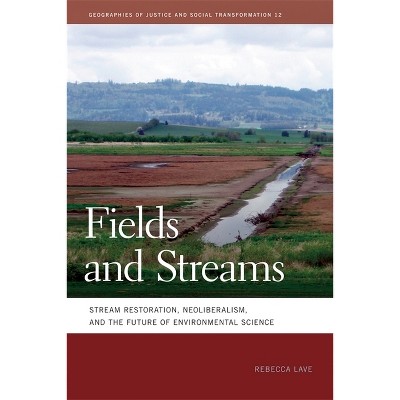Sponsored

Governor Henry Ellis and the Transformation of British North America - by Edward J Cashin (Paperback)
In Stock
Sponsored
About this item
Highlights
- Henry Ellis (1721-1806) is recognized as the most capable of Georgia's three colonial governors.
- About the Author: EDWARD J. CASHIN (1927-2007) was professor emeritus of history and former director of the Center for the Study of Georgia History at Augusta State University.
- 304 Pages
- History, United States
Description
About the Book
Henry Ellis (1721-1806) is recognized as the most capable of Georgia's three colonial governors. In this biography Edward J. Cashin presents the fullest account to date of Ellis's life, and shows that his tenure as governor of Georgia was but one of many accomplishments by a man of exemplary intelligence, courage, and vision.Book Synopsis
Henry Ellis (1721-1806) is recognized as the most capable of Georgia's three colonial governors. In this biography Edward J. Cashin presents the fullest account to date of Ellis's life, and shows that his tenure as governor of Georgia was but one of many accomplishments by a man of exemplary intelligence, courage, and vision. Cashin puts Ellis's life and career in the context of the great cultural migrations, encounters, and conflicts of British imperial and American colonial history. As he traces Ellis's rise from one who implemented British foreign policy to one who played a crucial hand in formulating it, Cashin reveals the inner workings of the imperial bureaucracy and shows how colonial politics were inextricably linked to the intrigues of the royal court and the vagaries of the nobility's patronage system.
The book's early chapters recall Ellis's youth and formative years as a transplanted Briton in Ireland, and then tell of his seafaring exploits as he searched Canada's arctic waters for the Northwest Passage and engaged in the slave trade between Africa, the Caribbean, and the American colonies--all the while enhancing his reputation as an explorer, scientist, and man of letters. As Georgia's governor (1757-1760) Ellis came to be known as the colony's "Second Founder" (after James Oglethorpe) by recasting it into one of the more economically sound, less politically factionalized North American colonies. In his account of Ellis's governorship Cashin shows how he had to function as a local administrator and a representative of the crown, managing, for instance, the French and Indian War as it was fought both in his colony and in the halls and chambers of Parliament. The middle chapters cover Ellis's return to England in 1761. There he accepted, but eventually relinquished, an appointment as governor of Nova Scotia. Choosing instead to remain in England, Ellis drew on his knowledge of French and Spanish colonial activity, the slave trade, and Indian affairs to advise Pitt, Egremont, Halifax, and others of the king's ministry. A polished statesman, Ellis weathered the machinations surrounding George III's ascension to the throne, and influenced the course of the war with France and the terms of its peace settlement in 1763. Ellis also had a hand in the political appointments, boundary settlements, and trade decisions attendant to the epochal Proclamation of 1763, which set the course of history for Quebec, Nova Scotia, the Floridas, and the British West Indies. After his invaluable help in reorganizing Britain's expanded American empire, Ellis withdrew from public service in 1768. Cashin portrays Ellis in genteel retirement, during which he increased his absentee landholdings in Ireland and traveled in Italy, France, Belgium, and elsewhere on the Continent. In his last years, Ellis was a much-sought-after guest, and moved within a circle of friends that included Horatio Nelson, the king of Sweden, and the Abbe Raynal. More than an artful biography, this is the story of a crucial period in American and British history, as told through the experiences of one of the period's most influential, behind-the-scenes power brokers.From the Back Cover
Henry Ellis (1721-1806) is recognized as the most capable of Georgia's three colonial governors. In this biography Edward J. Cashin presents the fullest account to date of Ellis's life, and shows that his tenure as governor of Georgia was but one of many accomplishments by a man of exemplary intelligence, courage, and vision. Cashin puts Ellis's life and career the context of the great cultural migrations, encounters, and conflicts of British imperial and American colonial history. As he traces Ellis's rise from one who implemented British foreign policy to one who played a crucial hand in formulating it, Cashin reveals the inner workings of the imperial bureaucracy and shows how colonial politics were inextricably linked to the intrigues of the royal court and the vagaries of the nobility's patronage system. The book's first chapters recall Ellis's youth and formative years as a transplanted Briton in Ireland, and then tell of his seafaring exploits as he searched Canada's arctic waters for the Northwest Passage and engaged in the slave trade between Africa, the Caribbean, and the American Colonies - all the while enhancing his reputation as an explorer, scientist, and man of his letters. As Georgia's governor (1757-1760) Ellis came to be known as the colony's "Second Founder" (after James Oglethorpe) by recasting it into one of the more economically sound, less politically factionalized North American colonies. In his account of Ellis's governorship Cashin shows how Ellis had to function as a local administrator and a representative of the crown, managing, for instance, the French and Indian War as it was fought both in his colony and in the halls and chambers of Parliament. Themiddle chapters cover Ellis's return to England in 1761. There he accepted, but eventually relinquished, an appointment as governor of Nova Scotia. Choosing instead to remain in England, Ellis drew on his knowledge of French and Spanish colonial activity, the slave trade, and Indian affairs to advise Pitt, Egremont, Halifax, and others of the king's ministry. A polished statesman, Ellis weathered the machinations surrounding George III's ascension to the throne, and influenced the course of the war with France and the terms of the peace settlement in 1763. Ellis also had a hand in the political appointments, boundary settlements, and trade decisions attendant to the epochal Proclamation of 1763, which set the course of history for Quebec, Nova Scotia, the Floridas, and the British West Indies. After his invaluable help in reorganizing Britain's expanded American empire, Ellis withdrew from public service in 1768. Cashin portrays Ellis in genteel retirement, during which he increased his absentee landholdings in Ireland and traveled in Italy, France, Belgium, and elsewhere on the Continent. In his last years, Ellis was a much-sought-after guest, and moved within a circle of friends that included Horatio Nelson, the king of Sweden, and the Abbe Raynal. More than an artful biography, this is the story of a crucial period in American and British history, as told through the experiences of one of the period's most influential, behind-the-scenes power brokers.Review Quotes
Cashin has added another graceful study to his corpus of works strengthening our grasp of the colonial and revolutionary South.
--Journal of Southern HistoryCashin's research on Ellis's life is deep and widespread. He has examined a vast number of original records, printed sources, and secondary literature, and his bibliography is exhaustive. He writes well, and his work is handsomely presented by his publisher. This will be the standard work on Henry Ellis for many years.
--Journal of American HistoryThis book provides much food for thought. It is eminently readable, making it accessible to both the general and specialized reader. And it reviews a wealth of historical scholarship without getting bogged down in academic hair-splitting. But most of all it tells an interesting story about how a third son of a middle-class landowner rose to hold positions of importance within the British government through the force of his intellect and the breadth of his skills. And after all, telling a good story is what a good biography should strive to do. Cashin succeeds at that here.
--Southern QuarterlyAbout the Author
EDWARD J. CASHIN (1927-2007) was professor emeritus of history and former director of the Center for the Study of Georgia History at Augusta State University. His books include The King's Ranger: Thomas Brown and the American Revolution on the Southern Frontier (Georgia), which won the 1990 Fraunces Tavern Book Award of the American Revolution Round Table, and Lachlan McGillivray, Indian Trader: The Shaping of the Southern Colonial Frontier (Georgia), which won the 1992 Malcolm and Muriel Barrow Bell Award of the Georgia Historical Society.










